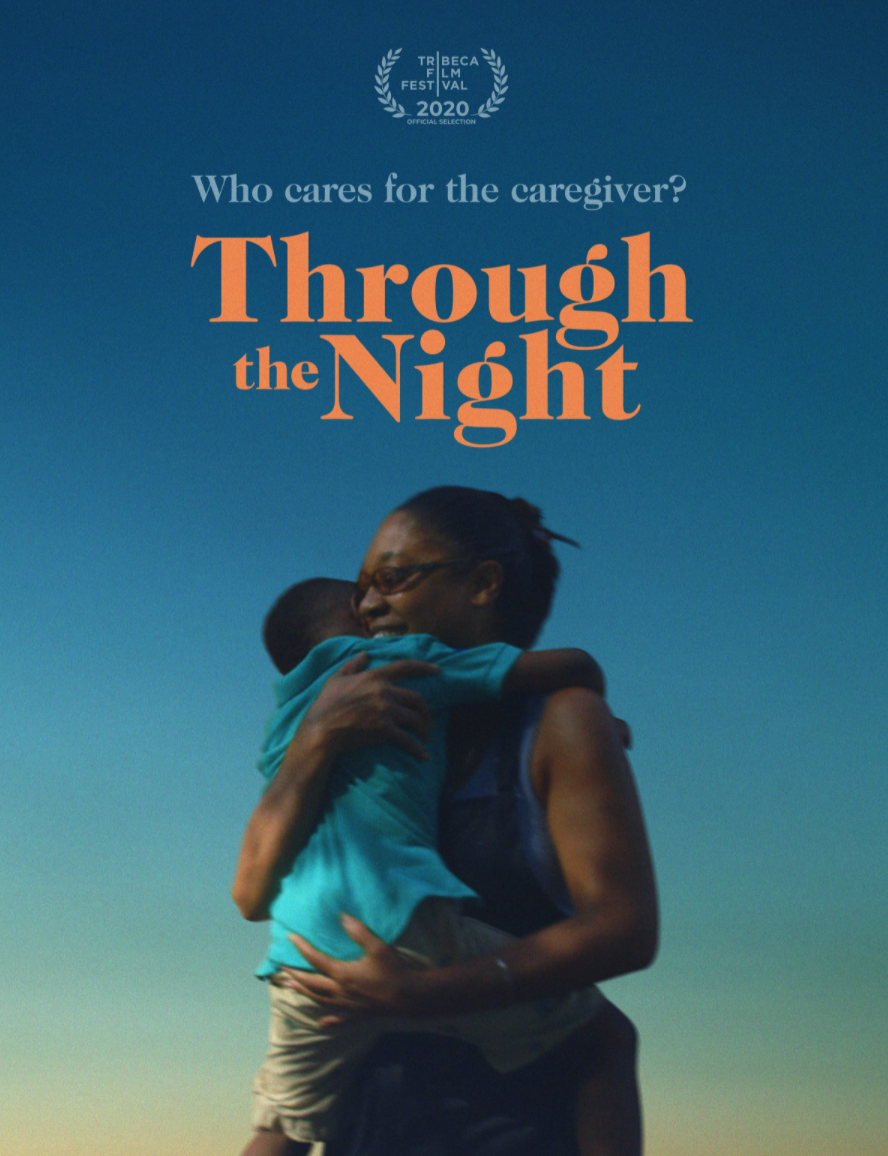Movie directed by LOIRA LIMBAL
Review by HANNAH GERSEN

I didn’t have much awareness of overnight childcare centers until I watched Through the Night, a documentary about a married couple, Deloris and Patrick Hogan, who run Dee’s Tots, a 24-hour daycare in New Rochelle, New York. Sadly, I don’t think my ignorance is unusual, and is likely shared by the many members of Congress who have consistently declined to fund public childcare, even after the pandemic revealed how necessary it is to working parents. Although not overtly political, Through the Night is quietly radical as it shines a light on the work of caregiving. It’s highly skilled labor that is essential to the health of children and families, yet childcare workers are often overworked and underpaid. To the extent that the government has childcare policies, they are designed to fit a model of a nuclear family with one stay-at-home parent. Director Loira Limbal shows the reality: many parents (usually mothers) are raising children on their own, and their jobs do not offer the pay, benefits, or flexibility to accommodate child-rearing.
Through the Night opens with Deloris, affectionately known as Nunu, helping a small group of children get ready for bed. The children sleep on mats in a play area, with twinkling lights overhead. After they’re tucked in, Nunu and Patrick—who the children call Pop Pop—attend to cleaning and clerical duties before retiring to their own bedroom. Nunu and Patrick run Dee’s Tots out of a large two-story house on a residential street, and the daycare has a cozy feeling, with the rooms decorated in bright colors, and shelves and cubbies crowded with books and toys, all cleaned up at the end of the day. Wood-paneled walls are covered with photos of children that Nunu and Patrick have cared for over the years. Outside is a garden that Nunu tends, sometimes with the children helping.
Limbal filmed at Dee’s Tots over the course of two years in pre-pandemic New York. She observes the center in all seasons, and at different points in the day, capturing the ebb and flow of the place, the way the day begins quietly with just a few kids, builds to a busy, lively, afterschool crowd, and then slows down at the end of the day. Limbal finds the moments of connection between child and caregiver, whether it’s Pop Pop joking around and handing out ice pops, or Nunu cuddling a baby while older children coo and stroke the baby’s cheeks. She also shows the domestic tasks—cleaning, gardening, tidying, cooking—that are constantly underway, and which create an atmosphere of safety and calm for the children. I appreciated the moments of stillness that Limbal and her cinematographers found, turning the camera away from the children to show Nunu’s garden, a view of street trees, or a row of plastic toys, recently cleaned and neatly arranged. They give a sense of place and show the thought that Nunu puts into her surroundings, knowing that she is cultivating a home away from home for children of all ages.
Although Nunu is at the center of the film, Limbal also takes us into the lives of two mothers who rely on Dee’s Tots for care. There’s Shanona Tate, a pediatric nurse assigned to the night shift, and Marisol Valencia, who works three part-time jobs in food service to support her family. Both women are exhausted by their schedules, especially Valencia, who is tired of piecing together a full day’s work and tells Limbal she would prefer to have just one job with predictable hours. We hear Limbal’s interviews with the women in voiceover as they go about their workdays; this isn’t a documentary of talking heads, with people sitting still and addressing the camera. Instead, her subjects are always moving, always multi-tasking. In one intimate scene, we see Tate’s daughter chatting with her mother just before she goes to bed at Dee’s Tots. It’s not an especially emotional moment, just Tate checking in and reminding her daughter that there’s a snack in her bag if she gets hungry, but there was something so real about that moment of parenting from a distance—one of the little ways that a child feels cared for, even if they aren’t especially effusive in their response.
Nunu started working in childcare after she looked after a friend’s child overnight for several weeks while her friend was recovering from surgery. Other mothers began to call on her for overnight care and she built a business through word-of-mouth, eventually buying a house and bringing her husband on board. Over time, Dee’s Tots evolved to become a mixed-ages daycare with full-time staffers, as well as a community hub for working women of color, with Nunu’s family at the center. Nunu takes part in local events, like the Thanksgiving Day parade, and she hosts an annual graduation party for the children under her care. We see her dispensing career advice to Valencia and helping older children with schoolwork. Dee’s Tots is more than just a daycare; it’s a support network.
Limbal, an Afro-Dominican filmmaker based in the Bronx, who is herself a single mother of two, found Dee’s Tots when she was browsing her local online mothers’ group. In an interview for Women and Hollywood, Limbal describes making the film on nights and weekends while also working full-time and raising her two small children. Limbal’s lived experience seeps into Through The Night; there’s deep respect for the work Nunu does, but also a sense that Nunu is being asked to make too many personal sacrifices to keep Dee’s Tots going. Limbal accompanies Nunu to doctor’s appointments, so that we see the physical toll her work is taking on her body. Nunu admits that she would have liked more time with her own family, and to cut back on late nights, but there are too many parents in need. When Nunu finally reaches her physical breaking point, it’s tragic because it’s so inevitable. One woman—however exceptional—can’t be expected to fill in for a missing social safety net.
Hannah Gersen is the author of Home Field and a staff writer at The Millions. She writes about movies on her blog, thelmaandalice.com, and a monthly newsletter: thelmaandalice.substack.com/




